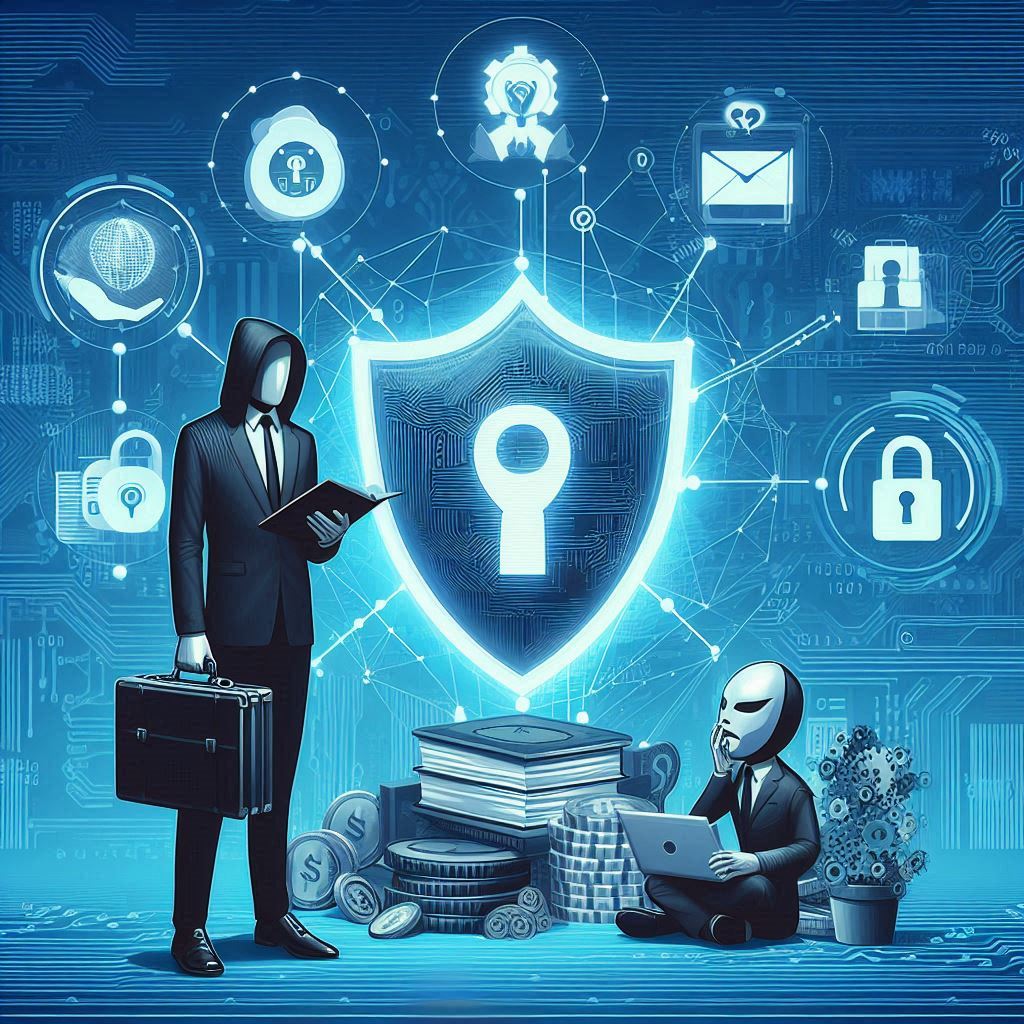
Your Guide to Cybersecurity + 5 Questions To Ask Your Vendors
Cybersecurity is a fundamental aspect of modern business operations. As cyber threats evolve, organizations must implement robust security measures to protect sensitive data and maintain compliance. Your Guide to Cybersecurity + 5 Questions To Ask Your Vendors provides insights into key cybersecurity practices and essential questions to ensure your vendors meet security standards.
Why Cybersecurity Matters
✅ Protecting Sensitive Data
Cyberattacks target confidential business and customer data, leading to financial and reputational damage. Strong cybersecurity frameworks safeguard against breaches and unauthorized access.
✅ Ensuring Regulatory Compliance
Compliance with regulations like GDPR, SOC 2, HIPAA, and ISO 27001 is crucial for maintaining legal and operational integrity. Organizations must assess vendor compliance to mitigate risks.
✅ Preventing Financial Losses
Cyber incidents result in costly damages, including ransomware payouts, data recovery expenses, and lost business opportunities. A proactive cybersecurity strategy reduces financial risks.
Key Cybersecurity Best Practices
✅ Implementing Multi-Factor Authentication (MFA)
MFA adds an extra layer of security, ensuring only authorized users gain access to critical systems.
✅ Regular Security Assessments
Frequent vulnerability scans and penetration testing help identify and mitigate potential security weaknesses.
✅ Data Encryption and Backup
Encrypting sensitive data and maintaining secure backups protect information from cyber threats and ensure business continuity.
✅ Employee Training and Awareness
Human error is a leading cause of security breaches. Regular training empowers employees to recognize and prevent cyber threats.
5 Critical Questions to Ask Your Vendors
What security measures do you have in place to protect our data?
Vendors should provide details about encryption, access controls, and security monitoring.
Are you compliant with industry regulations and standards?
Ensure vendors adhere to relevant cybersecurity frameworks such as SOC 2, ISO 27001, or NIST.
How do you handle security incidents and data breaches?
A clear incident response plan demonstrates preparedness for cyber threats.
What third-party risk management practices do you follow?
Vendors should have a structured process for assessing and mitigating risks from their supply chain.
Can you provide audit reports or security certifications?
Transparency in security audits and certifications validates a vendor’s commitment to cybersecurity.
How Risk Cognizance Supports Cybersecurity and Vendor Risk Management
Risk Cognizance offers a comprehensive GRC platform that helps organizations assess and manage cybersecurity risks. Our solutions enable businesses to evaluate vendor security, monitor compliance, and implement proactive risk mitigation strategies. With real-time security insights and automated compliance tracking, we empower organizations to stay ahead of evolving cyber threats.
Your Guide to Cybersecurity + 5 Questions To Ask Your Vendors is essential for protecting business assets and ensuring vendor accountability. By implementing strong security measures and assessing vendor risks, organizations can build a resilient cybersecurity posture and safeguard their future.
Cybersecurity is a fundamental aspect of modern business operations. As cyber threats evolve, organizations must implement robust security measures to protect sensitive data and maintain compliance. Your Guide to Cybersecurity + 5 Questions To Ask Your Vendors provides insights into key cybersecurity practices and essential questions to ensure your vendors meet security standards.
Why Cybersecurity Matters
✅ Protecting Sensitive Data
Cyberattacks target confidential business and customer data, leading to financial and reputational damage. Strong cybersecurity frameworks safeguard against breaches and unauthorized access.
✅ Ensuring Regulatory Compliance
Compliance with regulations like GDPR, SOC 2, HIPAA, and ISO 27001 is crucial for maintaining legal and operational integrity. Organizations must assess vendor compliance to mitigate risks.
✅ Preventing Financial Losses
Cyber incidents result in costly damages, including ransomware payouts, data recovery expenses, and lost business opportunities. A proactive cybersecurity strategy reduces financial risks.
Key Cybersecurity Best Practices
✅ Implementing Multi-Factor Authentication (MFA)
MFA adds an extra layer of security, ensuring only authorized users gain access to critical systems.
✅ Regular Security Assessments
Frequent vulnerability scans and penetration testing help identify and mitigate potential security weaknesses.
✅ Data Encryption and Backup
Encrypting sensitive data and maintaining secure backups protect information from cyber threats and ensure business continuity.
✅ Employee Training and Awareness
Human error is a leading cause of security breaches. Regular training empowers employees to recognize and prevent cyber threats.
5 Critical Questions to Ask Your Vendors
What security measures do you have in place to protect our data?
Vendors should provide details about encryption, access controls, and security monitoring.
Are you compliant with industry regulations and standards?
Ensure vendors adhere to relevant cybersecurity frameworks such as SOC 2, ISO 27001, or NIST.
How do you handle security incidents and data breaches?
A clear incident response plan demonstrates preparedness for cyber threats.
What third-party risk management practices do you follow?
Vendors should have a structured process for assessing and mitigating risks from their supply chain.
Can you provide audit reports or security certifications?
Transparency in security audits and certifications validates a vendor’s commitment to cybersecurity.
How Risk Cognizance Supports Cybersecurity and Vendor Risk Management
Risk Cognizance offers a comprehensive GRC platform that helps organizations assess and manage cybersecurity risks. Our solutions enable businesses to evaluate vendor security, monitor compliance, and implement proactive risk mitigation strategies. With real-time security insights and automated compliance tracking, we empower organizations to stay ahead of evolving cyber threats.
Your Guide to Cybersecurity + 5 Questions To Ask Your Vendors is essential for protecting business assets and ensuring vendor accountability. By implementing strong security measures and assessing vendor risks, organizations can build a resilient cybersecurity posture and safeguard their future.

